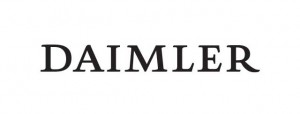Daimler AG’s reputation for corporate integrity is hanging by slender thread after the US Department of Justice filed an “information,” in federal court, charging the German automaker with systematically paying millions of dollars in bribes to officials in 22 different countries, among them North Korea, to secure business over the last decade.
“Information” is different from a federal indictment but usually precedes a guilty plea by an individual or company. Indeed, while Chrysler has little to say about the action by the Feds, word is already circulating that Daimler has already agreed to plead guilty to conspiracy and pay more than $182 million in fines to Justice and the Securities Exchange Commission.
The “criminal” activities outlined in the court documents filed by the Justice Department were common during Juergen Schrempp’s tenure as Daimler’s chief executive but continued after even Dieter Zetsche took over from Schrempp in the summer of 2005.
Neither Zetsche nor Schrempp were accused of misfeasance in the information.
However, count one of the charges specifically states, “From in our about 1999, through in or about January 2008, within the territory of the United States and elsewhere, defendant Daimler AG and others known and unknown did unlawfully, willfully and knowingly combine, conspire, confederate and agree with each other to commit an offense against the US, specifically to knowingly falsify and caused to be falsified books, records and accounts, which in reasonable detail, and would accurately and fairly reflect the transactions and disposition of the assets of Daimler AG.”
While no Daimler executive was singled out by the Feds, the bribery charges are certain to put new pressure on the company’s board of management, which is still on the defensive after losing money in 2009 and eliminating the dividend for common shareholders for the second straight year. Andreas Renschler, the flashy executive in charge of the truck group, could come under pressure to step aside since an inordinate number of bribes were laid out all over the world to sell trucks.
The purpose of the conspiracy was to conceal unlawful payments to foreign governments, according to the Justice Department, which also found that Daimler actually had a comprehensive network inside the company that used regional headquarters and “cash desks” to distribute the money and routinely inflated the price of Daimler products to cover the cost of the illicit papers, according to the Justice Department.
In fact, the court documents make it clear that information about illicit payments moved up and down the company’s chain of command. For example, Daimler and Daimler Financial entered into arrangements in places such as Croatia, knowing bribes and kickbacks would be required to secure contracts. Nonetheless, Daimler personnel moved ahead with the unsavory deals.
In another case, Daimler paid bribes or provided vehicles to government officials in Nigeria for several years and in another case, Daimler’s own evidence that executives in the company’s branch in Turkey distributed something like $10 million dollars in connection with vehicle exports to customers in North Korea, Latvia, Bulgaria, Libya, Romania, Russia, Saudi Arabia and Yemen.
In another case, Daimler officials wired $7,000 to the bank account of relatives of a Russian official to secure a contract with the City of Moscow. The relatives lived in Israel, raising serious questions about how the transaction ever made it through the company’s accounting staff.
Moreover, a careful reading of the documents suggests that some of the transactions, such as those involving dozens of accounts in California, were done with the help of Chrysler personnel.
In addition, it was not exactly a secret by the time by the time Zetsche took over from Schrempp that the company was under investigation for corrupt practices, starting with paying bribes to officials of Saddam Hussein dictatorial regime in Iraq, dating back to the years from the late 1990s until the American invasion in 2003.
Daimler sidestepped serious trouble after the 2005 release of a UN audit of the scandal-marred “Oil for Food Program. The German automaker said the bribes in Iraq were part of the cost of doing business with Saddam Hussein, who skimmed millions in bribes from the contracts with major suppliers of various kinds.
Daimler, according to the time line established by the Feds, also continued to pay off government officials even after a whistle blowers law filed by a former Chrysler employee was settled in 2004. The fact the Daimler failed to stop the bribery even after the whistle blower suit and the UN report could be the most damning part of the federal information.
Zetsche and the other Daimler executives like to claim omniscience. Now they are also certain to claim they did not know about the details of the systematic bribery that marked the company business practices all over the world.
The fact is they cannot claim both.

